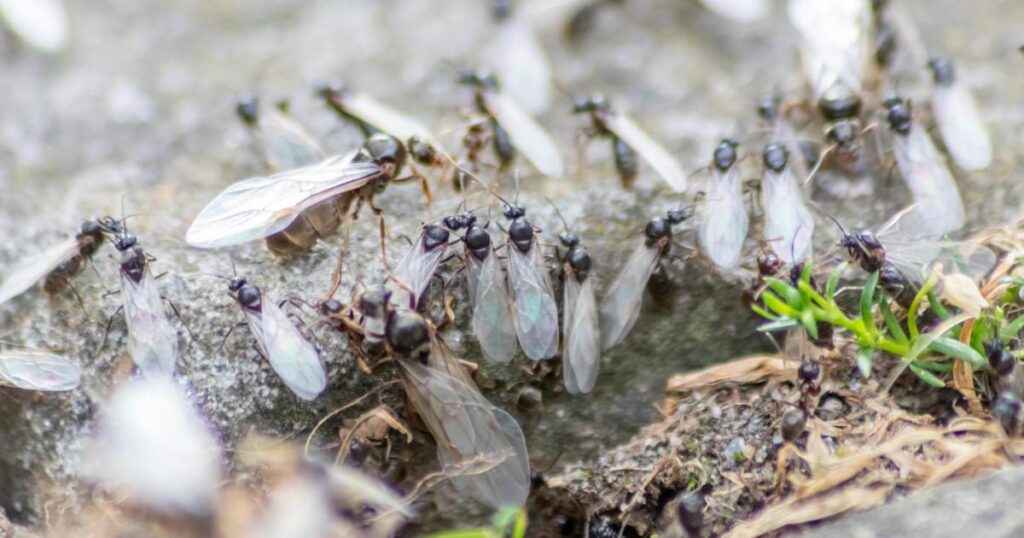The winged insects, which are particularly prominent in urban areas, are almost always sexually mature black garden ants.
The largest of these are the queens, while the smaller variety is male.
According to the Natural History Museum, flying ants are common between the months of July and August, a hotter and more humid time of year.

Here is what gets rid of flying ants as they descend on the UK
There are a number of ways to get rid of flying ants from your home, and Adam Pawson, Marketing Director at Safestyle, has shared some of the simplest and most effective.
Block entry points
The expert said: “Unfortunately, windows provide easy access for pesky flying ants to enter our properties, so it’s important to make sure any entry points are sealed shut.
“If any flying ants or insects have entered your home, make sure to frequently dust and clean any particularly light and airy spaces to ensure no insects or bugs get a chance to set up camp.”
Use citrus scents to deter them
He also recommended using essential oils, such as peppermint oil or remedies that make use of leftover citrus fruits.
Adam states: “Flying ants despise scents of citrus fruits, so mixing your leftover lemon, lime or orange peel with water can create an excellent rub to spread over your windowsill.
“You can also find citrus-scented diffusers to place on your windowsill; the smell should act as a great repellent.”

Fly traps as a last resort
Fly traps are also said to be an “effective” way for catching and preventing these bugs from entering your home.
However, the expert warns that those making use of these traps near their windows should take care when removing them, as they can leave a sticky residue behind that is hard to clean off.
Adam added: “To protect your windows, we recommend relying on other methods first, such as scent deterrents to keep flies at bay and only use fly traps as a last resort.
“If you do use fly traps on your windows, place them at the bottom or top corner of your window and make sure to clean the affected area carefully afterwards with a soft cloth or squeegee to gently remove the residue.
“A solution of vinegar, washing up liquid and warm water will help to dissolve the mark, while being a safe option for your window.”
Recommended Reading:
Stay on top of cleaning
The final tip shared was to keep on top of cleaning around the home and to ensure there is no leftover food lying out.
Cleaning all surfaces to remove crumbs and washing dishes can also go a long way in keeping these pests at bay.




